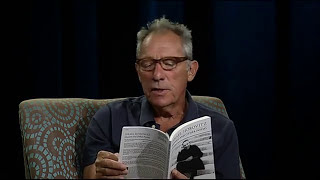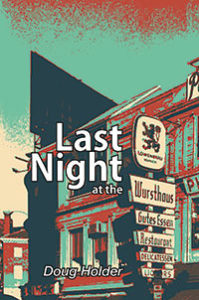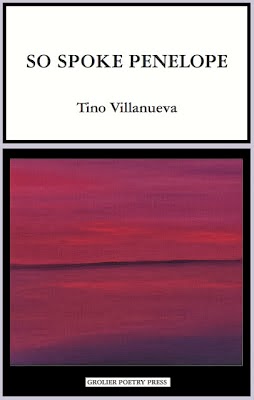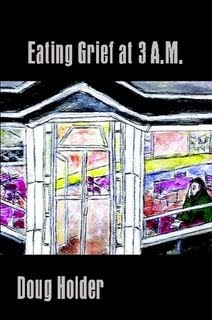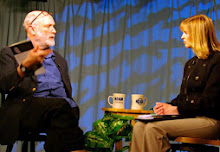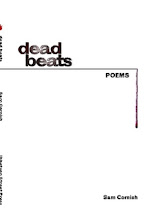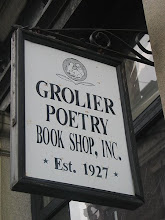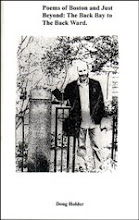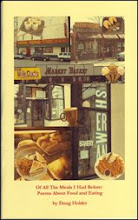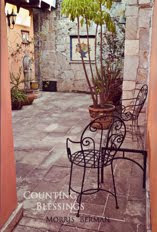
Counting Blessings
Morris Berman
Cervena Barva Press
$16.00
Review by Rene Schwiesow
As a general rule I am a believer in things happening for a reason. On the day I received “Counting Blessings” for review there were two books on the table. Doug Holder handed me “Counting Blessings.” Considering the way in which the work spoke to me, I know I was given the right book. The cover of “Counting Blessings,” is a peaceful courtyard that invites the reader to sit for a while and to become immersed in the poetry. But the real meat begins when you start to read the in-depth and informative forward by Paul Christiensen. I was hooked in the first paragraph and knew I would not put the book down until I was finished. And I didn’t.
Christensen talks about how Berman’s work “The Reenchantment of the World” became a guide in his classroom. After reading two more intriguing paragraphs that included such things as “Einstein’s relativity and the mysterious interactions with quantum physics” and a nod to James Hillman’s work, “Healing Fiction,” I was ready to dig into the poetry. Then just when I didn’t think Christensen could say anything to inspire me further to begin the book, I read this quote by Bob Herbert: “. . .A country that refuses to properly educate its young or to maintain its physical plant is one that has clearly lost its way.” “Berman,” Christensen says, “had already been there, said that.”
Morris Berman is an essayist, novelist, social critic, and cultural historian. He writes a fine blog, entitled “Dark Ages America,” which you can find at: www.morrisberman.blogspot.com/. In “Counting Blessings” he has penned his gratitude for a “life lived away from the maddening crowd.” Berman now resides in Mexico. It was in Mexico that he found the stillness necessary to rejuvenate his creative spirit.
They told me to stop and smell the roses. . .
A complicated, delicate insect
crawling along the edge of a pot in my garden
delicate feelers, large green eyes
absorbed in what it was doing.
I can do that, once in a while:
three seconds every month, perhaps.
It is clear that Berman has taken more than three seconds a month, however, to become absorbed in the observation of the world around him. In “Light,” Berman makes note of observations over a lifetime, including a “cosmic” moment at the age of seven:
and the light was all around me
as though I were in heaven
“Light” ends with these powerhouse lines:
Exodus says it guided the Jews through the desert,
but I’m not looking for the Promised Land,
Oh no –
wandering in the desert is the Promised Land.
I could quote more stop-and-ponder lines from wonderful poems like “The Dodo Bird,” “Ahora,” “Lalo,” and “Doctora Susana,” but I will leave the discovery to you. “Counting Blessings” is a book well worth your reading. Do yourself a favor and pick up a copy today!
Rene Schwiesow is co-host of the popular South Shore poetry venue, The Art of Words, held in Plymouth the second Sunday of the month, October through June







